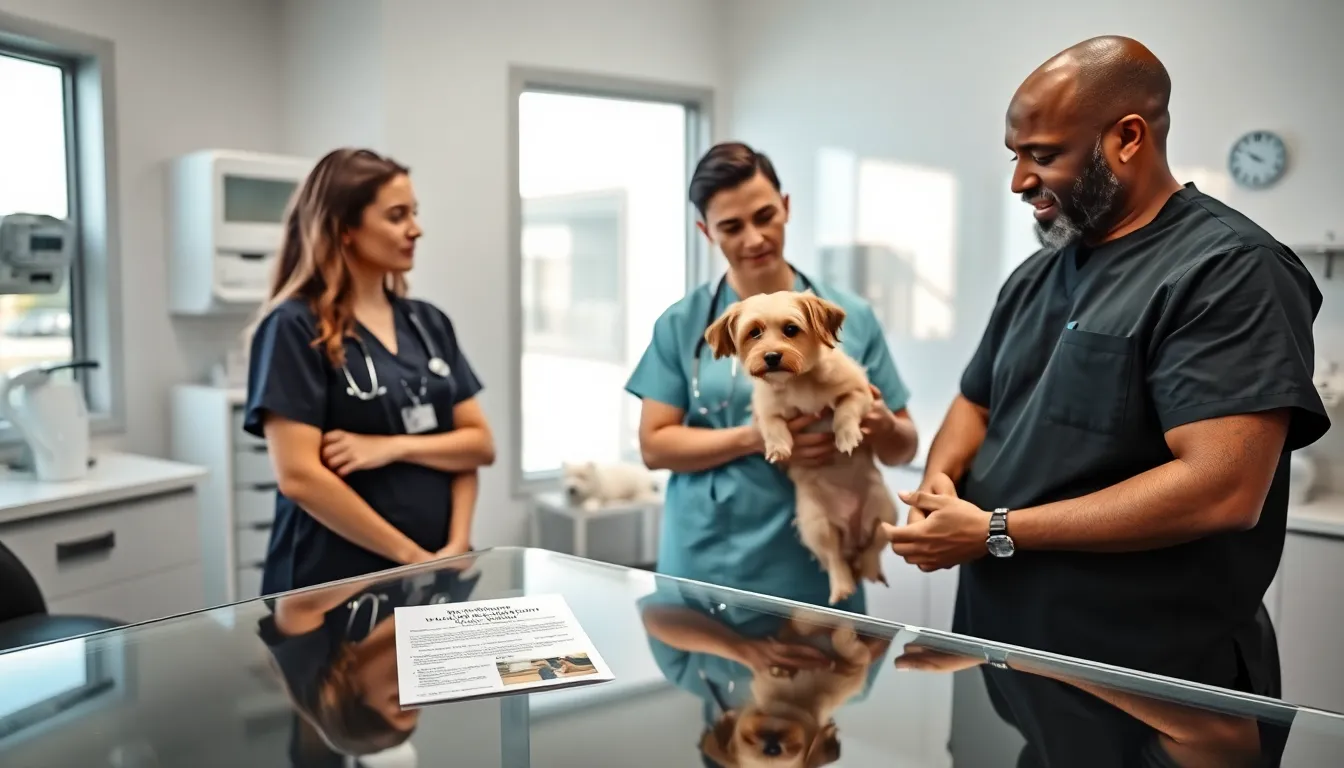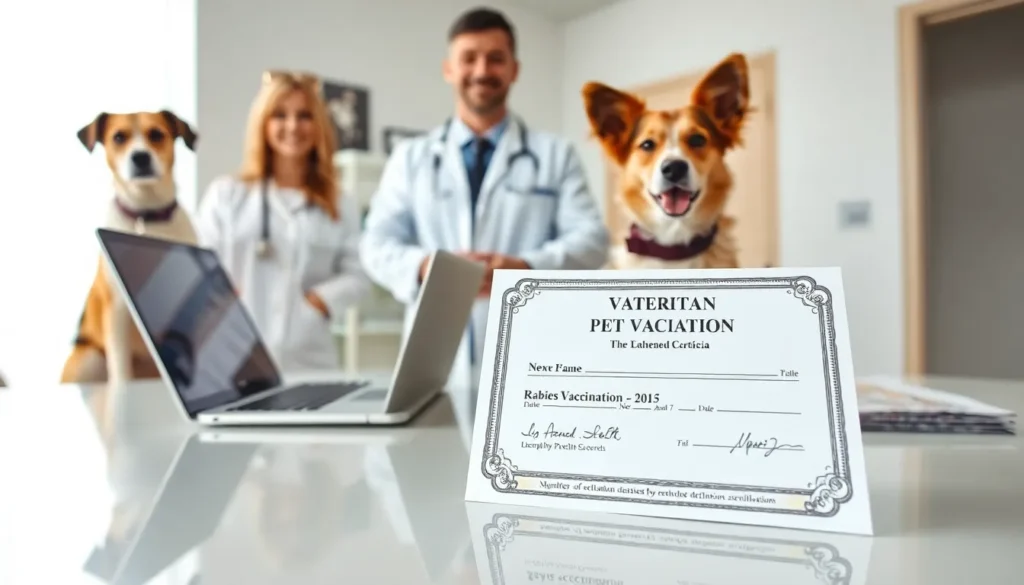When it comes to pet health and travel, one document reigns supreme: the rabies vaccination certificate. Think of it as your furry friend’s passport to a world of adventures. But why should this certificate matter to you? Well, a quick jab in the arm not only protects your pet from the dreaded rabies virus but also ensures you can take them places without a hitch. Grab a comfy seat and join us as we investigate into what makes this little piece of paper a powerhouse in pet care and travel.
Table of Contents
ToggleUnderstanding Rabies and Its Prevention

Rabies is a viral disease that primarily affects mammals, including humans. It’s transmitted through saliva, typically via bites from infected animals. According to the World Health Organization (WHO), rabies causes tens of thousands of deaths each year, primarily in rural areas of developing countries. But even in the U.S., where rabies is less common, pet owners need to stay vigilant.
Vaccination is the best defense against this poignant disease. By immunizing pets against rabies, owners can prevent potential infections. A single rabies vaccine is effective for several years depending on the pet’s age and health at the time and local regulations about booster shots. It’s crucial to understand that while rabies may seem like a distant threat, its prevalence in wildlife makes vaccination not just a precaution but a necessity.
What Is a Rabies Vaccination Certificate?
A rabies vaccination certificate is an official document issued by a veterinarian after an animal has received the rabies vaccine. This certificate typically contains essential details such as the pet’s name, the date of vaccination, the type of vaccine used, and the veterinarian’s details. Think of it as proof that your pet is protected against this life-threatening disease.
This document is not just a formality: it’s often required for various situations, from travel to boarding in pet facilities. For instance, some states or countries may require proof of rabies vaccination before allowing your pet entry. Hence, keeping this certificate handy is vital for every pet owner.
Importance of Rabies Vaccination
Rabies vaccination is critical not only for the safety of pets but also for public health. When pets are vaccinated, they help maintain herd immunity, reducing the overall risk of rabies in the pet population. This is especially crucial in areas where rabies is more prevalent.
Also, rabies can pose a significant financial burden. Veterinary treatment for rabies exposure can be extremely expensive, not to mention the emotional distress of dealing with a rabid animal. In 2017 alone, rabies vaccinations saved countless pets and minimized risks to their owners and the public. It’s a small price to pay for peace of mind, isn’t it?
Who Needs a Rabies Vaccination Certificate?
Both cats and dogs require a rabies vaccination certificate. While some might think it’s just a dog problem, cats can contract rabies, too. Owners of exotic pets, like ferrets or monkeys, may also need to ensure their animals are vaccinated and documented. Besides, certain breeds of dogs, especially those categorized as high-risk, may face stricter regulations surrounding rabies vaccinations.
Plus to pets, some states or municipalities may require wildlife rehabilitation centers or zoos to maintain vaccination records for the health and safety of both staff and the public. Understanding local laws can help owners avoid hefty fines or worse, public health risks.
Obtaining a Rabies Vaccination Certificate
To obtain a rabies vaccination certificate, the first step is to schedule a visit to a licensed veterinarian. During this appointment, the vet will assess the pet’s overall health, discuss vaccination options, and administer the vaccine. Once the vaccine is given, the vet will issue the certificate.
Key Information Included in the Certificate
A standard rabies vaccination certificate will include vital information, such as:
- Pet’s name and species
- Owner’s name and contact information
- Date of vaccination
- Type of vaccine administered
- Expiration date of the vaccination
- Veterinarian’s signature and clinic details
This information is crucial: keep the certificate in a safe place, as it may be required for travel or when registering your pet.
Validity and Renewal of the Certificate
The validity of a rabies vaccination certificate often depends on the type of vaccine used. Some rabies vaccines are effective for one year, while others can last for three years. It’s essential for pet owners to remain aware of these time frames to avoid any lapse in coverage.
Renewing the certificate typically involves a quick visit back to the veterinarian. During this visit, the pet will either receive a booster shot or a new vaccination, and a new certificate will be issued. Keeping track of vaccination dates and reminders can ensure pets remain protected.
Traveling with a Rabies Vaccination Certificate
Planning to travel? A rabies vaccination certificate becomes even more crucial. Many airlines and international borders require proof of rabies vaccination before allowing pets on board or into a country. Some destinations may have specific vaccination requirements that pet owners must fulfill, including a minimum vaccination duration before travel.
Before embarking on a journey, researching local regulations is essential. Pet owners should also keep the vaccination certificate easily accessible during travel. No one wants to be that person scrambling at security.










